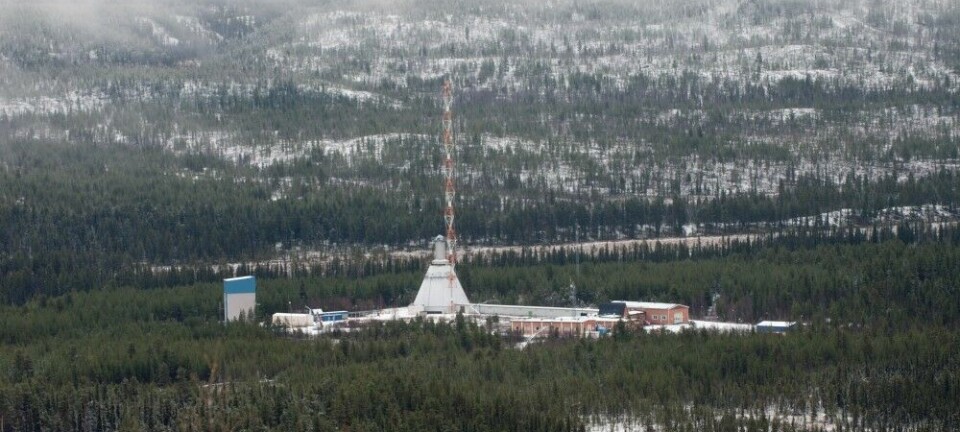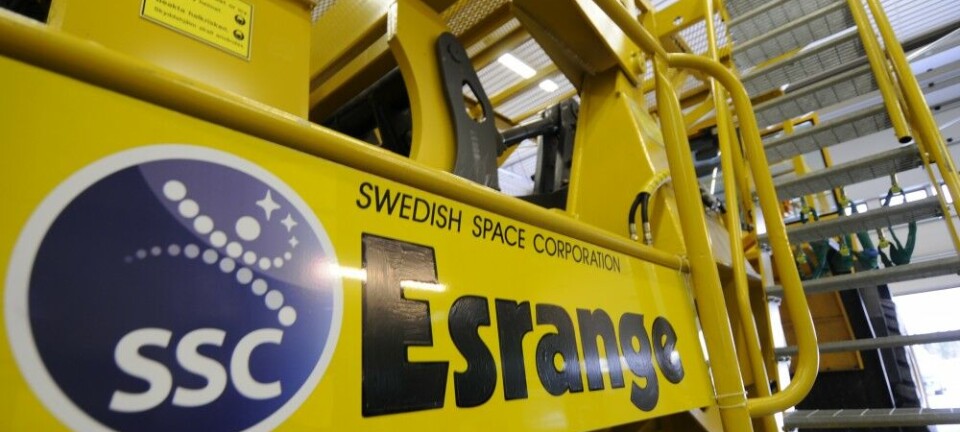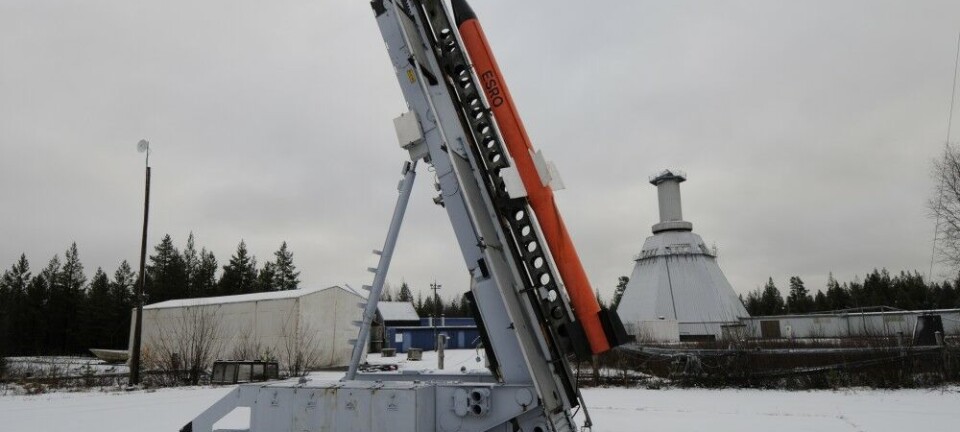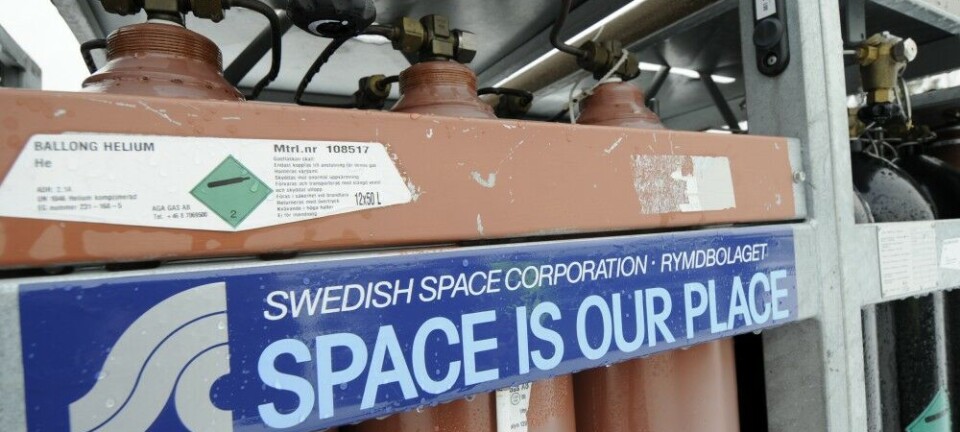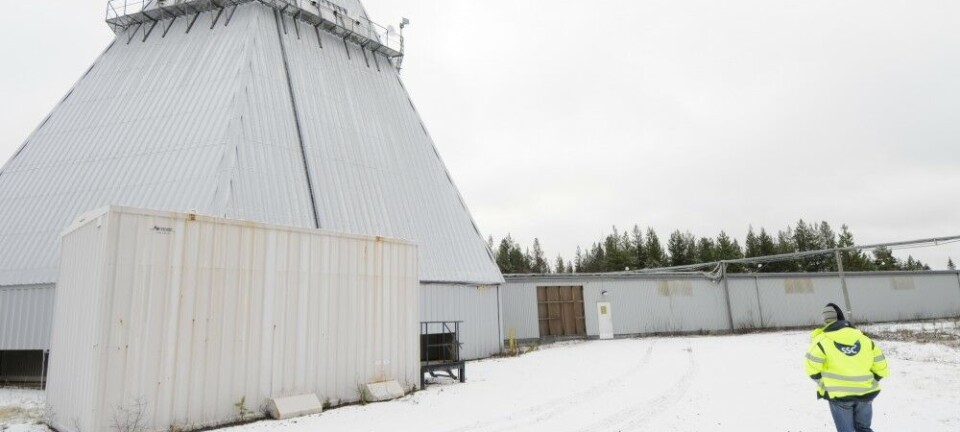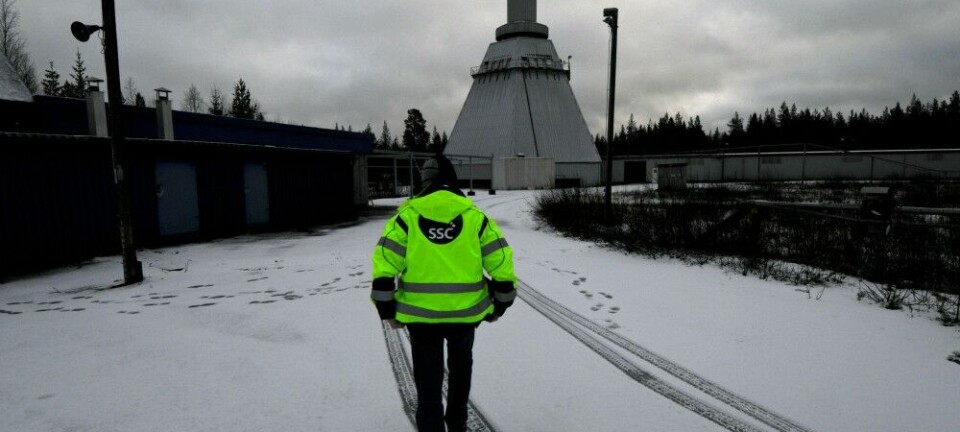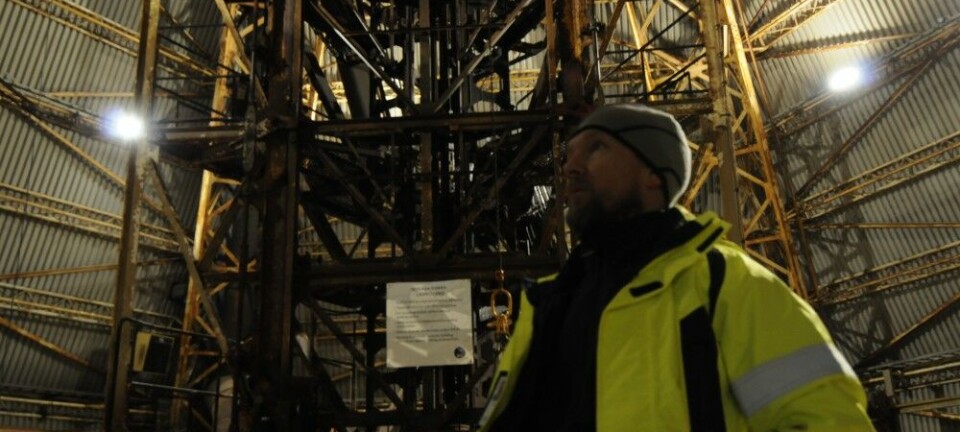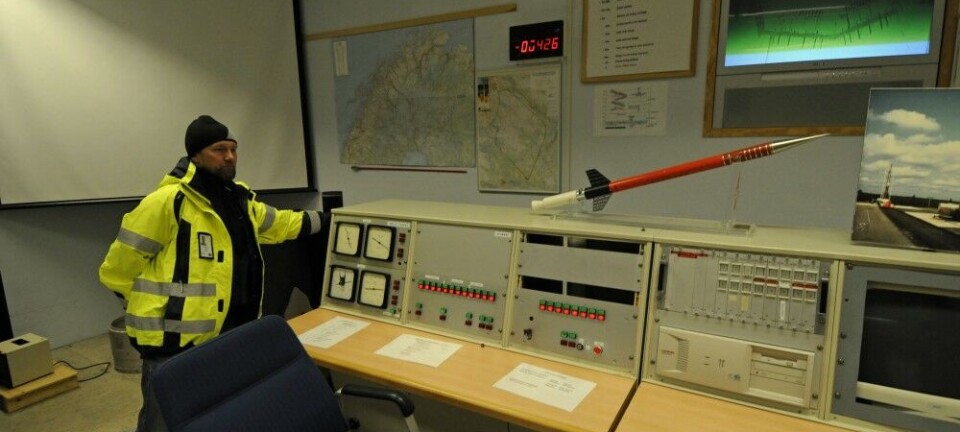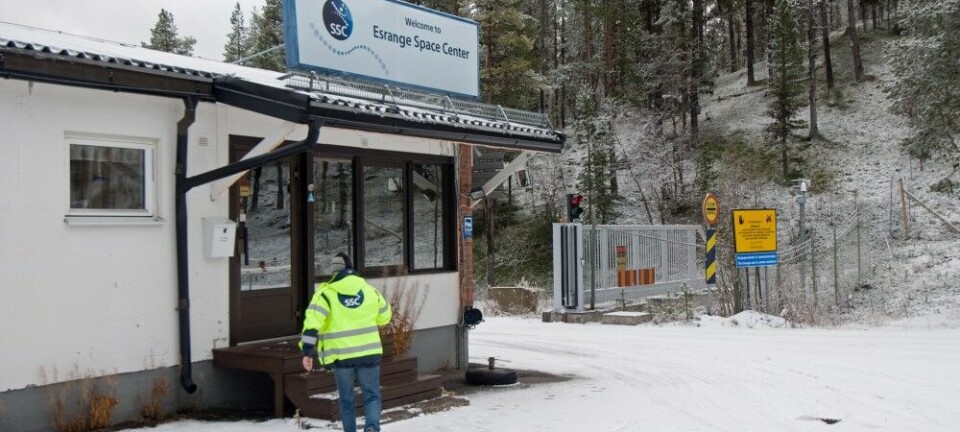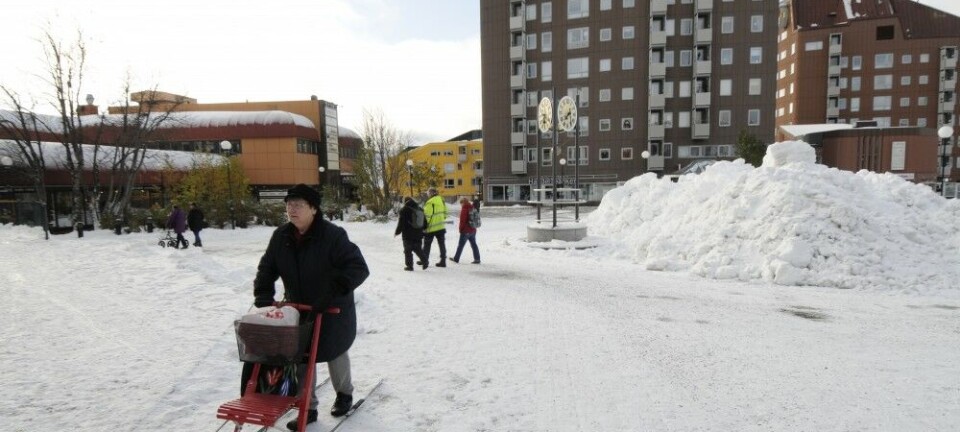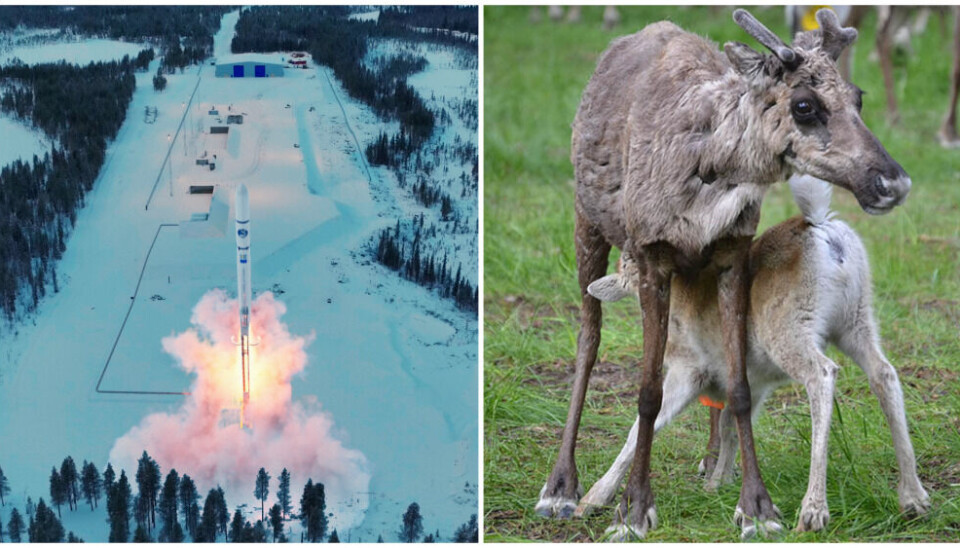
"They see us as a problem rather than partners" - Sámi concerned over satellite launches in Kiruna
The Esrange Space Center in Swedish Kiruna, located 200 km above the Arctic Circle, promotes satellite launches for both civilian and military purposes to EU countries and NATO. Local Sámi villages are concerned about the consequences expanded operations will have on reindeer husbandry and Sámi culture.
The Swedish government aims to utilize Esrange Space Center for launching both civilian and military orbital satellites, and they have presented the possibility for NATO allies and EU countries to use these services. This announcement was made by Swedish Minister of Foreign Affairs, Tomas Billström, during his visit to the USA in mid-May, where he presented the Swedish space strategy, SVT reports.
Esrange Space Center is located approximately 40 kilometers east of Sweden’s northernmost city Kiruna, and is owned and operated by the state-owned Swedish Space Company (SSC).
In January 2023 the new orbital satellite launch site was inaugurated, and came to be the first of its kind in mainland EU. The launch site, Esrange Spaceport, is located in the Sámi reindeer herding village Talma.
The new launch site is viewed as critical asset for strengthening Europe’s capability to launch satellites and improve space competitiveness.
The Sámi People are worried
However, future satellite launching operations at Esrange raises concerns in the Sámi reindeer herding villages in the area. The space center is located in Sapmi - the cultural land of Sámi People, which covers the northern regions of Norway, Sweden, Finland and the Kola Peninsula of Russia. For decades the Esrange Space Center and reindeer herders have had to coexist on the land.
“This is our ancestral land, where we fish, hunt, gather berries, and raise reindeer. It holds ancient Sami cultural sites, and we have lived here for thousands of years,” - Ol-Johan Sikku, member of Saarivuoma reindeer herding village
The Chair of Talma reindeer herding village told SVT that increased operations will make reindeer husbandry more difficult in the area. Already now it is hard since it isn’t possible to care for the animals at all times due to restricted access to the area during tests.
Another Sámi reindeer herding village affected by the expansion is Saarivuoma, located north of Esrange Space Center. At the moment the reindeers’ winter pasture area is used for for landing test rockets and balloons. There are also plans to build two landing platforms on the village’s land for the purpose of testing reusable rocket technology.
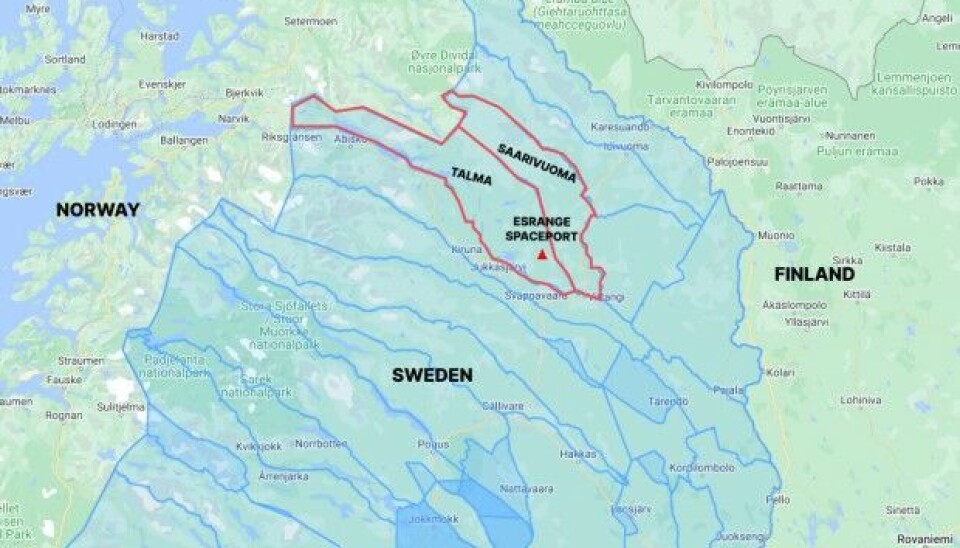
“In parallel with satellite launches, the new facility, will also be used as a testing ground for Europe’s reusable rocket technology program, “Themis.” This program will conduct so-called hop tests where the rocket lifts off and lands. Currently, we have a launch pad, but a landing site will also be needed for these tests in the future,” Philip Olsson, Head of Communications at SSC, explains.
As a response to Esrange’s plans, Saarivuoma released a report assessing the effects of the proposed landing sites on reindeer husbandry and Sámi culture. Among other things it states that there is a “concern for the powerlessness felt when outside developers seem to take for granted that they can occupy the land and habitat of Sárvuopmi” (Saarivuoma), and that “This is a form of structural violence that is just as serious as overt violence”.
Ol-Johán Sikku, a member of Saarivuoma and author of the report, is critical to the placement of the landing platforms.
“This is our ancestral land, where we fish, hunt, gather berries, and raise reindeer. It holds ancient Sami cultural sites, and we have lived here for thousands of years. Despite the landing platforms being only 40x40 meters each, their infrastructure will require a fenced area of 150x300 meters, along with buildings and roads.”
He says that no sustainable arguments have been presented as to why the landing sites have been located in the proposed areas.
“There is no need to exploit sensitive mountain areas for this purpose when there are already developed areas available. If they can control the rockets’ trajectory, why can’t they ensure they land at the launch site or in an already exploited area”, Sikku asks.
The report calls for clearer agreements and rules between Esrange and the Sámi village.
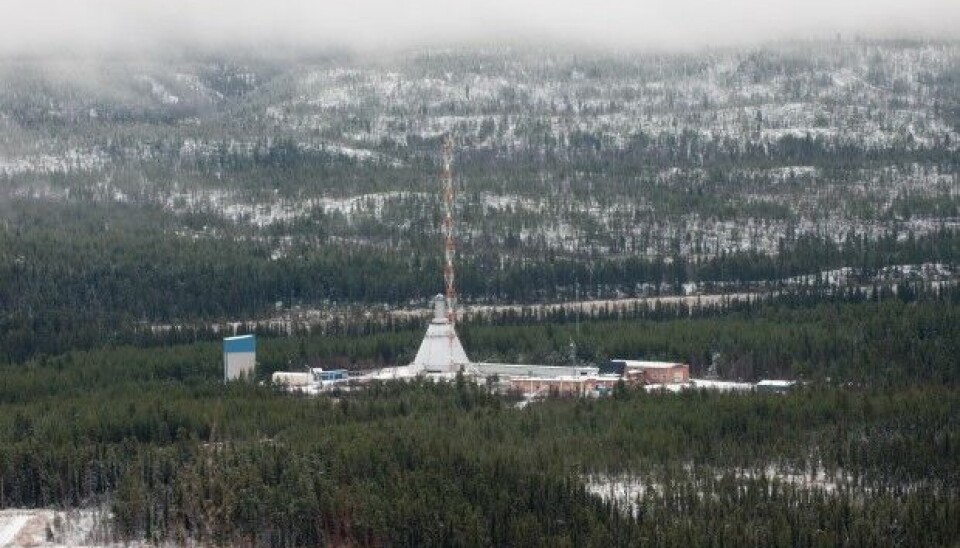
Sikku says that communication with Esrange regarding test landings is not always effective. Every spring-winter season, there are recurrent discussions about this issue.
“They [Esrange] see us as a problem rather than partners. One can detect a form of structural discrimination where they believe they have a greater right to the land,” Sikku notes.
Olsson, Head of Communications at SCC, says that there are currently discussions about various options for the landing platforms, but nothing has been finalised regarding the location or timing.
He also states that the dialogue with the Sámi People is important:
“Operations at Esrange have been ongoing since the 1960s, and the dialogue with the Sami villages and other nearby residents has been positive over the years. As we invest in the future, it is naturally very important that this dialogue continues , we are already prioritising this highly and will continue to do so.”
Esrange key in space defense
Space defense has become increasingly important for both Europe and NATO due to several strategic, economic, and security considerations.
Military orbital satellites are vital for modern defense and security, offering capabilities that enhance intelligence gathering, communication, navigation, missile defense, and situational awareness.
Esrange has planned to launch orbital satellites for many years, but the project faced delays. In 2023, the new orbital satellite launching complex was finally opened and the interest for launching military satellites from the site has grown since Sweden became a full member of NATO in March 2024.
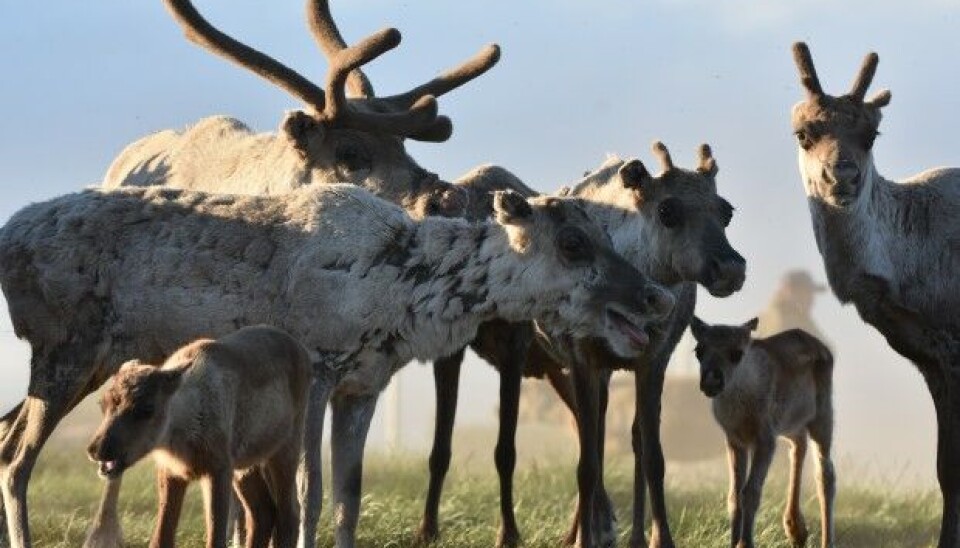
In Foreign minister Billström’s speech during the USA visit, he highlighted the importance of space and stressed the value of partnerships, especially given today’s geopolitical landscape, as part of Sweden’s space diplomacy. According to a press release from SSC, utilizing northern Sweden’s existing civilian space capabilities could make Esrange a key hub for international collaboration in space defense.
Launch in 2025
Olsson says that SSC has signed agreements with two rocket manufacturers that are to transport the satellites to space.
One of the rocket manufacturers are South Korean, and the other partner is to be announced next week.
The South Korean company’s rocket model is currently being tested in South Korea, and once completed, the company will establish itself at the new launch facility at the Esrange Spaceport in Sweden. The first launch from Esrange is planned for the end of 2025. The second rocket partner is scheduled to begin operating at Esrange in 2026.
Satellite launch race
So far European satellites have been launched to orbit from Europe’s spaceport in Korou, French Guiana in South America. Hitherto the only orbital launch site in use situated within European territory is located in the Archangel region (Arkhangelsk Oblast) of northern Russia.
Andøya Space, located in Nordmela on the island of Andøya in Northern Norway, is also vying to become the first to launch orbital satellites. Their launch site opened in November 2023. A spokesperson from the German commercial space company Isar Aerospace, which provides the launch vehicles, says that they are currently awaiting required permits. The timetable is not clear but test flights will be conducted as soon as possible.
Another launch site on European soil is also being developed at the SaxaVord Spaceport on the Shetland Islands off the coast of Scotland.

